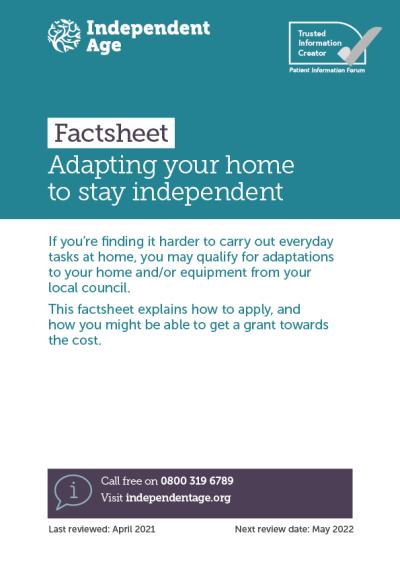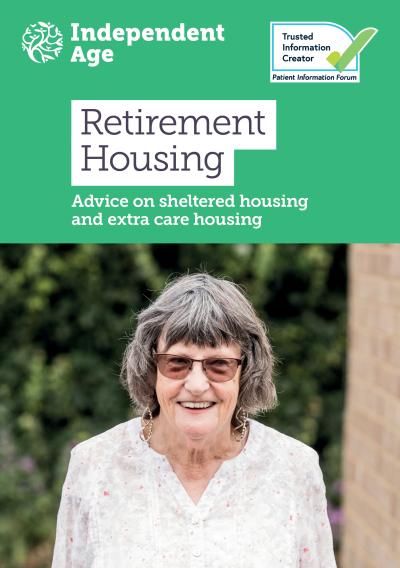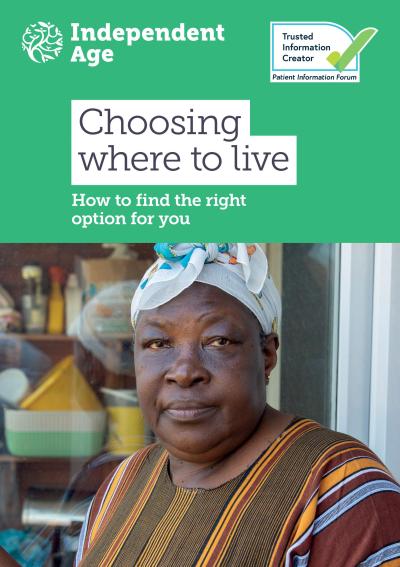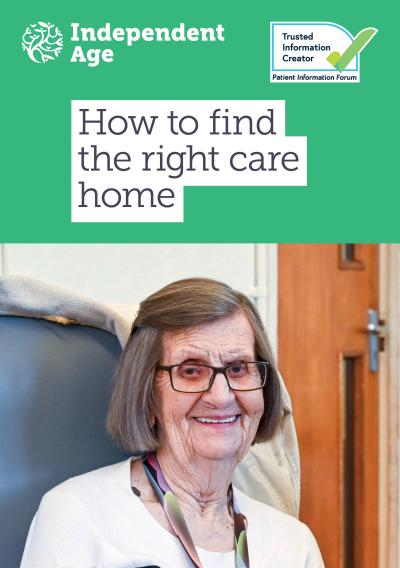Related publications

Adapting your home to stay independent

Retirement housing

Choosing where to live

The prospect of moving can be hard to face. Older people may be less willing to think about it and those closest to them less likely to bring it up. But by talking early, you and your relative or friend will be able to consider all the options available and plan ahead.
Moving can be daunting, so people often put it off until they have no choice. It may be difficult to approach the subject because of what an older person’s home means to them. It can be a place where they have experienced significant life events and it may hold many memories for both you and your relative or friend. Moving can also represent a loss of independence and control.
Talking about it can:
• help them prepare emotionally for any changes
• give them an opportunity to explore all the options.
Fear of moving into a care home often stops people mentioning any difficulties they might be having. But residential care could be a positive step for your relative or friend – it could give them back a routine, regular healthy meals and people to talk to. There are also other types of housing that could be considered.
Given this can be a particularly emotional topic to consider, it might be worth involving a third party, such as a GP or social worker, to help them come to a decision on their own about what type of housing would be best for them.
It gets harder to contemplate moving as people get older so the sooner you start talking, the better. Don’t wait for a crisis. Your relative or friend will have more choices if they plan ahead, and you’ll both have time to gather information and look through possible options together.
You don’t have to confront your relative or friend with the idea of moving straightaway. Ask questions that could get them thinking about how they might manage in the future:
Feeling isolated can sometimes prompt a move to more suitable accommodation. If your relative or friend doesn’t have much to say in response to the following questions, they may already be feeling isolated:
Use direct experience – talk about someone you know who is considering moving or has successfully moved.
A care home may seem the most obvious place to move to, but it is not necessarily the only option. Take your time to research other options so you can help your relative or friend make a decision that’s best for them.
For many people, there are various services, adaptations or types of housing they could consider if they think their current home isn’t suitable anymore. If your relative or friend is still able to live independently, they might want to look at:
If your relative or friend has a care needs assessment that shows residential care is their best option, do some research so you can both make informed decisions about where they might live. There are different types of care home, so the choices will depend on their needs and priorities and how much they can afford to pay.
As a first step, look at our webpages:
You could also go and visit some care homes and read reports about them online.

To find contact details of your local council, go to gov.uk/find-local-council.
For more information on care homes and what to look out for, see our guide How to find the right care home.